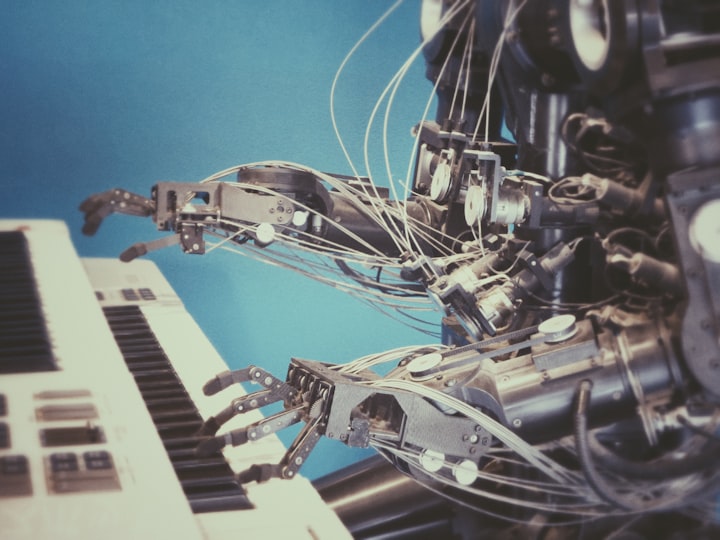Is Your Career at Risk?
Jobs Disappearing in the Next 15 Years

I hope you're ready to embark on a journey into the future with me. Picture this: it's a world where machines and algorithms are taking over tasks that were once exclusively in human hands. Some call it progress, while others see it as the relentless march of automation. Whichever side of the fence you're on, there's no denying that the job landscape is changing, and it's changing fast.
In a groundbreaking study conducted by Oxford University, a startling revelation emerged. Brace yourself for this: 45% of all the jobs we know today are predicted to vanish within the next decade. Yes, you read that right—nearly half of our current employment opportunities will either be entirely automated or so profoundly transformed that they require only a fraction of the human workforce they do now. So, if you're thinking about your career or wondering about your children's future, it's time to sit up and pay attention.
Let's dive right into the heart of this brave new world and explore 15 jobs that could very well be living on borrowed time. If you find yourself in one of these professions, it might be prudent to start considering alternative paths. After all, forewarned is forearmed.
1. Drivers of All Kinds
Your days could be numbered whether you're operating a cab, bus, truck, or even an Uber. Self-driving cars are the transportation of the future; they are no longer the stuff of science fiction. Ask Elon Musk about his allegedly "autopilot" Teslas.
2. Farmers
In some places of the world, the idea of a toiling farmer may still persist, but on a large scale, farming has become heavily mechanized. Nowadays, from crop health monitoring to planting and harvesting, drones and satellites work more effectively.
3. Printers and Publishers
In a world of real-time digital information, traditional newspapers and magazines are fighting to remain relevant. We are witnessing a change from ink on paper to pixels on screens, which is placing printers and publishers in jeopardy.
4. Cashiers
Self-service checkouts and online shopping are altering the retail scene. Human cashiers scanning your products may soon be a thing of the past.
5. Travel Agents
When was the last time you went to a travel agency to make a vacation reservation? Human travel agents are becoming obsolete as a result of internet travel platforms and apps.
6. Manufacturing Workers
In the manufacturing industry, automation and robotics are replacing manual labor. It's less about human brawn these days and more about programming and supervising machines.
7. Dispatchers
Coordination of processes requiring real-time decision-making is gradually shifting away from human hands and toward algorithms. Human dispatchers' days may be numbered.
8. Waitstaff and Bartenders
While social interaction is still important, self-ordering kiosks and robot bartenders are already available. Human attractiveness is frequently overshadowed by efficiency.
9. Bank Tellers
Banking transactions have evolved away from physical branches and toward Internet platforms and ATMs. The demand for human fortune tellers is dwindling.
10. Military Pilots and Soldiers
The military is at the cutting edge of technology use. Drones and superior weaponry have already altered the modern fighting landscape.
11. Fast Food Workers
The fast-food industry's wage war is propelling automation forward. More self-ordering kiosks and robotic kitchen assistants are on the way.
12. Telemarketers
Telemarketing has mainly been replaced by targeted online adverts. Algorithms are more accurate in anticipating what you might be interested in.
13. Accountants and Tax Preparers
Data entry and organizing, which were long the exclusive domain of accountants, are now being automated by sophisticated software.
14. Stock Traders
The majority of stock trading today is done by algorithms rather than human traders. Machines have the upper hand due to their speed and precision.
15. Construction Workers
Construction is changing as a result of technological advancements, with machinery and automation lessening the need for human labor.
16. Bonus: Movie Stars
Even the entertainment industry is not immune. Computer-generated actors are growing more realistic, and it won't be long until we see more films featuring artificial leads.
Conclusion
Adaptability is essential in this continuously changing market. It is not about rejecting change, but rather about accepting it. Future professions may necessitate different skill sets, and those who prosper will be those who can pivot, adapt, and evolve with the times.
So, as we stand at the crossroads of automation and human inventiveness, the question is: Will your career last, or are you ready to ride the tide of change into occupations of the future? My friend, the decision is entirely yours.
About the Creator
Michael Tobiko
Crafting captivating narratives is more than a skill – it's my burning passion. Let's dive into the realm of possibilities. 🚀✨






Comments
There are no comments for this story
Be the first to respond and start the conversation.